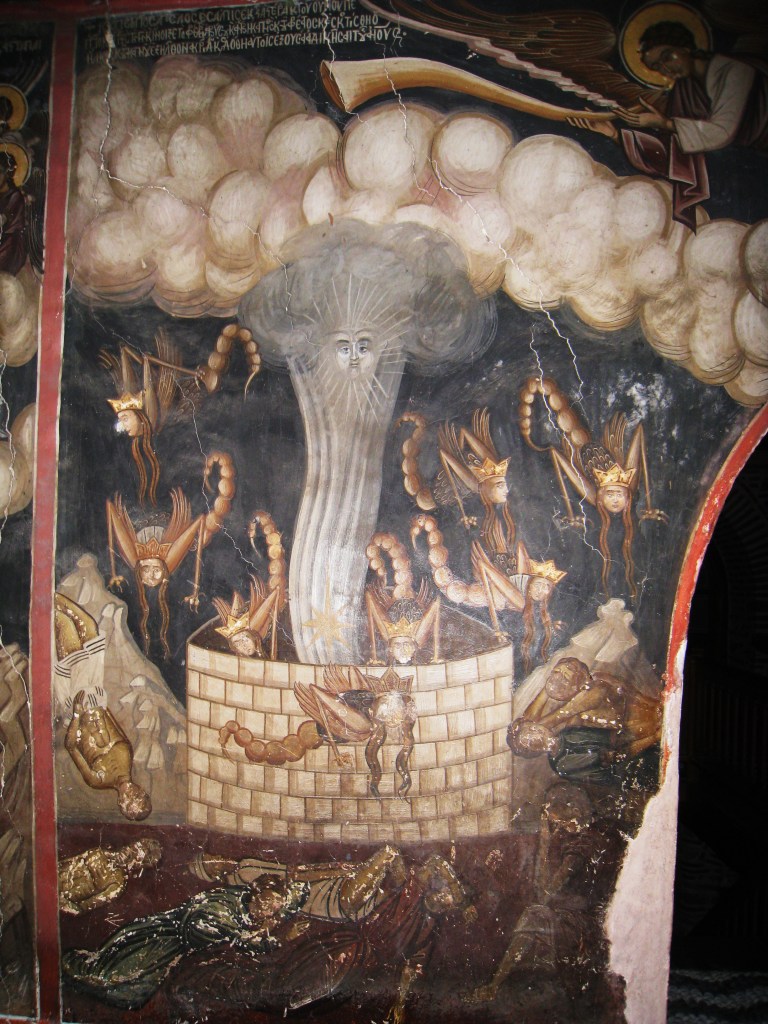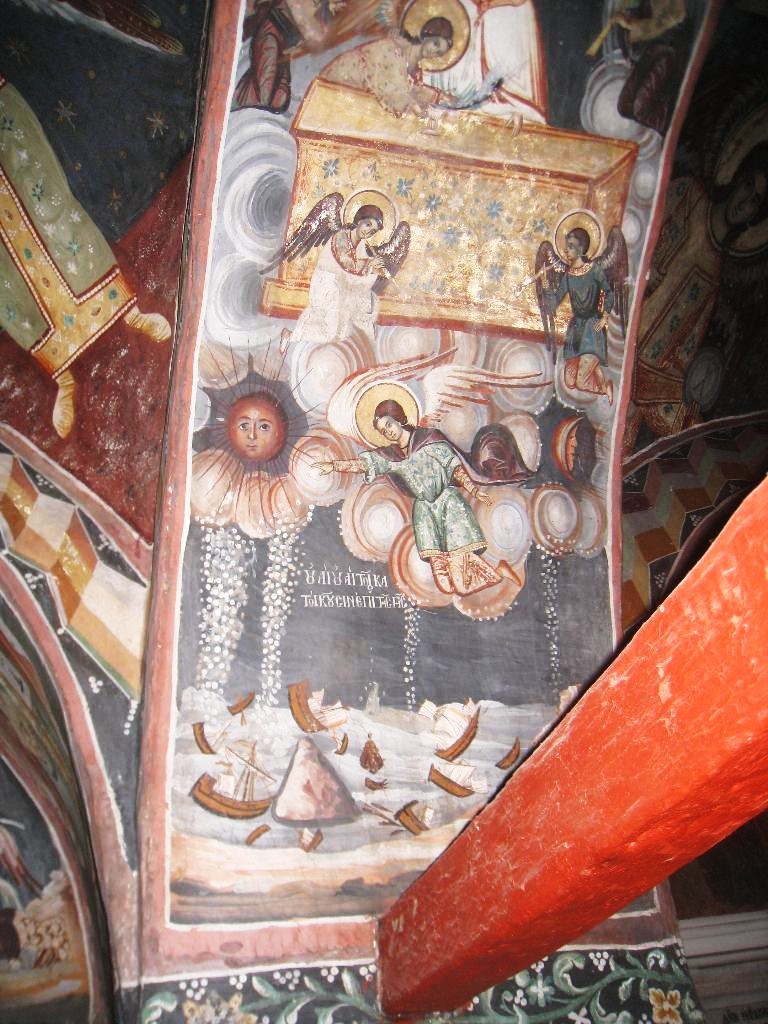
I saw a star fallen from heaven to earth, and he was given a key to the shaft of the abyss. He opened the shaft of the abyss, and smoke came up from the shaft like smoke from a great furnace, and the sun and the air were darkened by the smoke from the shaft. Out of the smoke came locusts… (Apoc. 9:1-3)
A fallen star is a fallen angel. Hence, the star is “he” and given a key to the abyss. Stars–in apocalyptic writing–are always angels, whether good or bad, faithful to God or not. The tradition of fallen angels is ancient though it does not appear in the oldest layer of biblical writing; the story of the angelic fall is told in 1 Enoch 6-13, an expansion of Genesis 6:1-4. Jesus also refers to the fall of the angels: “I saw Satan fall like lightning from heaven” (Luke 10:18).
The “abyss” is the usual Greek translation of “the deep” (ex. Gen. 1:2, Psalm 105:9, 107:26); it is also used to refer to Sheol (Job 41, Romans 10). In the Apocalypse, the abyss-the deep-sheol is the provisional prison of Satan and the fallen angels. In the gospel, the demons beg Jesus not to send them there (Luke 8:31). In this chapter of the Apocalypse, a shaft leads to the abyss-the deep-sheol and a fallen angel is allowed to unlock it.
Out of the abyss comes a great cloud of smoke and ash; from the smoke and ash come the monstrous locusts that attack people but are not allowed to attack the earth itself, unlike natural locusts. These supernatural locusts attack and torture but cannot kill; they can sting like scorpions and have a king (the word is more usually translated as “emperor”), unlike natural locusts (Proverbs 30:27).
Is the Apocalypse comparing the locusts to the imperial Roman system by using the Greek word for “emperor” rather than “king” to describe their organization? If so, then the Roman state–and any political system that is in opposition to God–can attack and torment the faithful but cannot destroy or overwhelm the Kingdom of God. I have recently discovered the work of Walter Wink, who writes about the demonic aspect of human political systems. As my friend Daniel says, “Phenomena like The Exorcist and The Amityville Horror do occur, but the real danger is from beings that assume power over humanity in the form of nations, corporations, political ideologies, and economic systems.”

